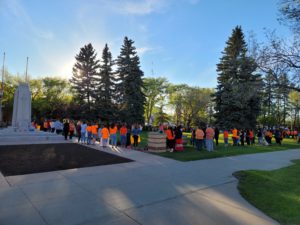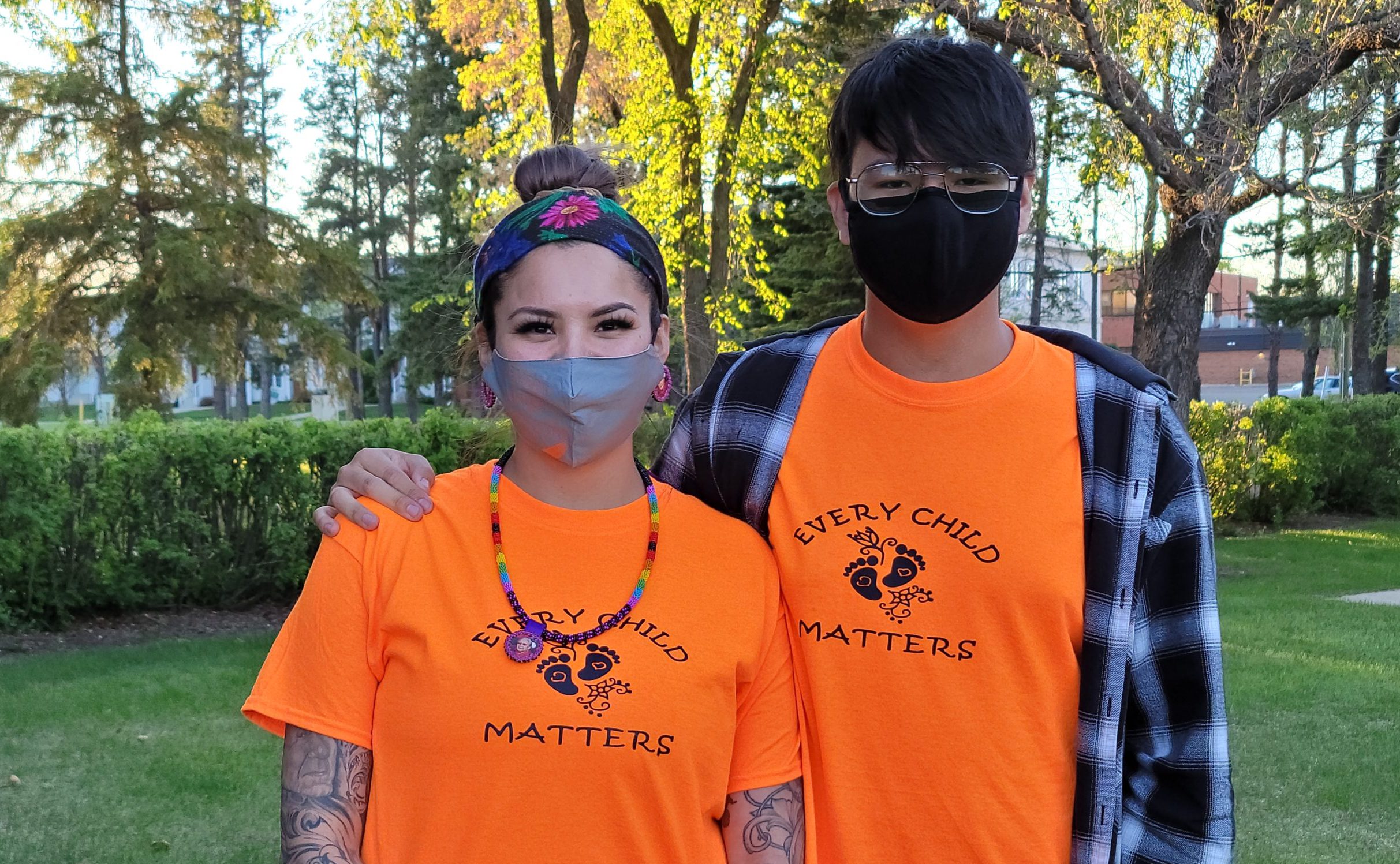For Lloydminster resident Trysta Cook and her family, the discovery of the 215 bodies of children at the former residential school in B.C. hits home as her family is originally from Onion Lake.
Her grandparents all attended residential schools. She shared her family pain at Monday’s memorial at City Hall Lloydminster. She detailed her memories of her grandmother Violet Chief and paternal grandparents Maggie and Edwin Cook.
“So my grandma was given the job of sewing. My grandma was making blankets. She was making clothing. She was making all of that stuff and my grandpa Edwin, he was basically a slave. My dad told me that he didn’t get any education. My grandpa was outside working hard. He was like a slave.”
Cook says her family tried to protect her and did not want to traumatize her with the painful experiences that her grandparents endured at residential schools. She admits that the inter-generational trauma is a part of her life and she grapples with what happened in her family and the stories she has heard from other survivors.
Residential school survivors were told to be silent as they were stripped of their language and culture and that trauma has had its effect on Cook, who does not know her native Cree.
“I’m a third generation. I can’t even speak my language. My mom hardly speaks it. Every generation down. My son, he’s the fourth, he doesn’t speak anything or know anything cultural. I even tried to teach him. It’s just sad because that is what they wanted to do to our people.”
Cook shares with her son Kenyan about what her grandparents went through and that he is really fortunate to be home with them as opposed to being sent away like his grandparents.
Cook says it’s unfortunate that the discovery of a mass grave site in Kamloops is what it took for people to face the legacy of residential schools in Canada.
“We weren’t lying. We weren’t over-exaggerating and you can’t just tell us to get over it because we can’t just get over it. It’s just sad that it had to take this for people to realize and to actually get educated about residential schools because people thought it didn’t exist.”
Cook is thanking all the people who came out to Monday evening’s memorial at City Hall. She suggests that if anyone is in need of support they can access resources like the National Indian Residential School Crisis Line by calling 1-866-925-4419.





